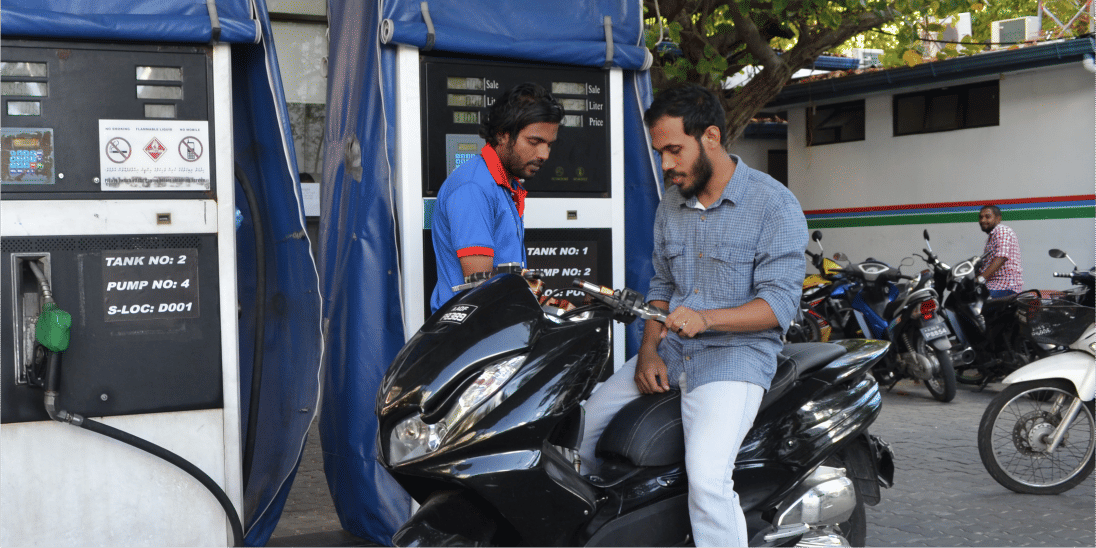Petrol and diesel prices hiked
The changes were prompted by price increases in the global market, the State Trading Organisation said. The prices of crude oil presently stand at US$48.6 per barrel, up from US$46 at the end of June.

06 Sep 2017, 09:00
The state-owned wholesaler has hiked oil prices by 30 laari per litre of petrol and 20 laari per litre of diesel with effect from Wednesday.
The changes were prompted by price increases in the global market, the State Trading Organisation said. The prices of crude oil presently stand at US$48.6 per barrel, up from US$46 at the end of June.
After the STO’s price hikes, the prices of a litre of diesel and petrol has risen to MVR8.64 (50 cents) and MVR8.95 (60 cents) respectively. Last month, STO reportedly increased the price of diesel and petrol sold to third party suppliers by 43 laari and 26 laari per litre respectively.
The price hikes come after reductions in June when the government slashed import duty for petroleum products from 10 to five percent.
Become a member
Get full access to our archive and personalise your experience.
Already a member?
Discussion
No comments yet. Be the first to share your thoughts!
No comments yet. Be the first to join the conversation!
Join the Conversation
Sign in to share your thoughts under an alias and take part in the discussion. Independent journalism thrives on open, respectful debate — your voice matters.




